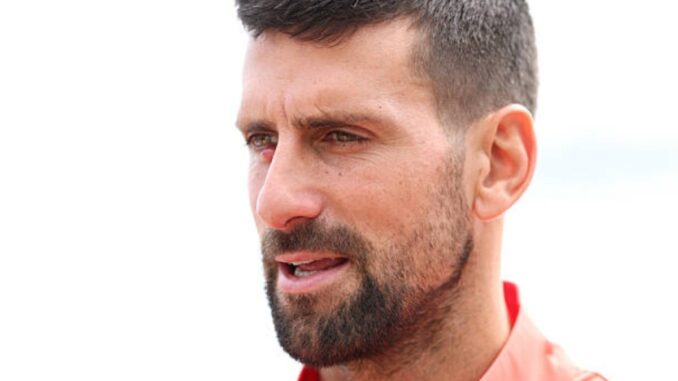
As the tennis world gathers under the glistening Mediterranean sun for the Monte Carlo Masters in April 2025, a simmering tension between players and the sport’s most prestigious tournaments—the Grand Slams—has taken center stage. At the heart of this brewing conflict is Novak Djokovic, the Serbian superstar whose record-breaking 24 Grand Slam titles have cemented his status as one of tennis’s all-time greats. With the clay courts of Monaco as his backdrop, Djokovic has stepped into the fray, offering a bold vision for resolving the standoff that’s pitted players against the Australian Open, Roland Garros, Wimbledon, and the US Open. His proposal? A collaborative dialogue that could reshape the sport’s financial and decision-making landscape, a move he calls “the best scenario” for all involved.
The spark for this drama ignited weeks ago when nearly all of the top 20 male and female players—minus a lone holdout—put their signatures on a letter addressed to the four Grand Slam tournaments. Their demand was clear: a bigger slice of the revenue pie, which currently sees players pocketing around 15% of the majors’ earnings, far below the 30% they typically see at ATP and WTA events. For a sport that generates millions through ticket sales, broadcasts, and sponsorships, the players argue they’re the ones driving the show—and they want their paychecks to reflect it. Djokovic, a vocal advocate for player rights and a co-founder of the Professional Tennis Players Association, has emerged as a key voice in this push, blending his on-court dominance with off-court leadership.
Speaking to a small group of reporters amid the Monte Carlo buzz, Djokovic laid out his case with the clarity of a man who’s spent years navigating the sport’s complexities. “In general, I think the feeling is that players believe we should receive a percentage close to what we get in ATP tournaments,” he said, his tone measured yet resolute. He envisions a future where the Grand Slams don’t just dictate terms but sit down with players to hash out a fair deal. “Let’s hope the Grand Slams respond positively and are willing to have players to sit down and discuss about revenues,” he added, emphasizing that inclusion is key. For him, it’s not just about the money—it’s about respect, about ensuring players have a seat at the table when decisions that shape their careers are made.
The numbers tell a stark story. While Grand Slam prize money has ballooned over the decades, the percentage of total revenue funneled to players lags behind other major sports. In tennis’s biggest arenas, where champions like Djokovic, Jannik Sinner, and Aryna Sabalenka captivate global audiences, the disparity feels glaring. The players’ plea isn’t for a 50-50 split—Alexander Zverev, another top star, dismissed that as a pipe dream—but for something closer to the tour’s norm. Djokovic sees this as a logical step, not a quick fix. “The increase won’t happen overnight,” he cautioned, framing it as a long-term play that requires patience and partnership. Yet, he’s optimistic: “It would be the best scenario,” he declared, a rallying cry for unity in a sport often fractured by individual pursuits.
This isn’t Djokovic’s first rodeo in challenging tennis’s power structures. His advocacy traces back to the PTPA’s formation in 2020, a move born from frustration with the ATP and WTA’s handling of player concerns. Now, with the Grand Slams in the crosshairs, he’s doubling down. He imagines a streamlined solution: a handful of top players—perhaps one or two men and women—meeting with tournament brass to negotiate. “We should have advice because this affects us and we need to be part of the conversation,” he insisted, his words echoing a broader call for transparency. It’s a practical yet ambitious idea, one that could bridge the gap between the sport’s elite and its governing giants.
The timing feels ripe. Monte Carlo, with its star-studded draw featuring Zverev, Carlos Alcaraz, and Medvedev, underscores the talent fueling tennis’s global appeal. Yet, Sinner’s absence—due to his doping suspension—highlights the stakes of every decision, from prize money to scheduling. Djokovic knows the Grand Slams hold the keys to billions, but he’s betting they’ll see the value in compromise. “Tennis has a very fast pace,” he reflected, nodding to the unpredictability of injuries and bans that can derail careers. In that whirlwind, he argues, players deserve a voice—and a fairer share of the rewards.
For now, the ball’s in the Grand Slams’ court. Will they embrace Djokovic’s vision of collaboration, or dig in their heels? As the Serbian prepares to chase another title on Monte Carlo’s red dirt, his off-court serve might just prove as impactful as his on-court backhand—a shot at redefining tennis’s future, one conversation at a time.
Leave a Reply